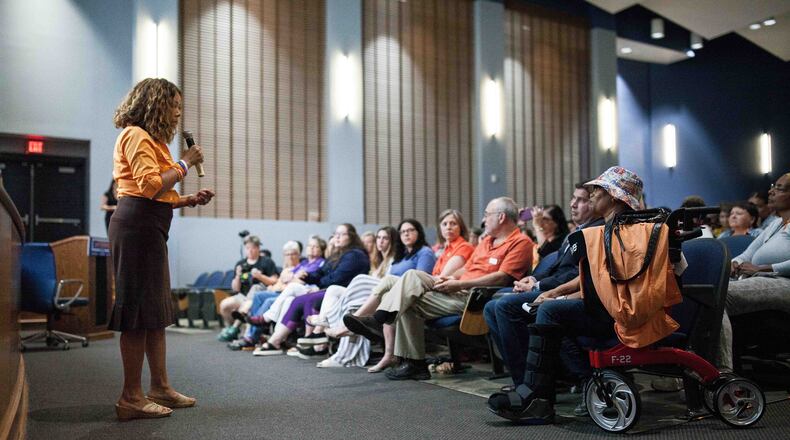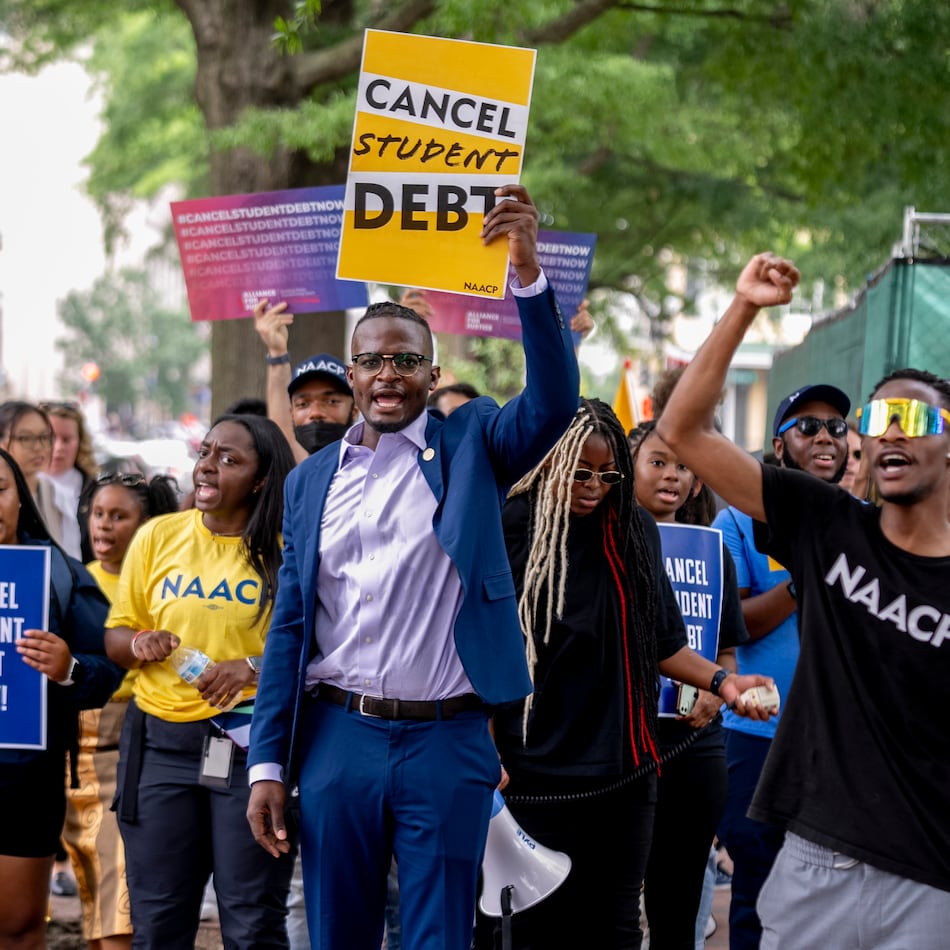A long-sought Democratic effort to raise the minimum wage to $15 an hour could prove to be a major campaign issue in Georgia in the lead-up to next year’s elections.
Georgia's 14 U.S. House members voted along strict party lines Thursday on the Raise the Wage Act, which would gradually raise the federal minimum wage over six years from its current $7.25 hourly rate.
The state’s five Democrats supported the proposal, which took months to finalize as party leaders looked to maintain the support of progressives and more centrist lawmakers who flipped districts previously won by President Donald Trump.
Democrats said the bill would raise wages for more than 30 million workers and lift 1 million people out of poverty.
U.S. Rep. David Scott estimated the legislation would boost pay for nearly 21,000 workers in his Southwest Atlanta district alone. U.S. Rep. Sanford Bishop said it would impact roughly 43% of workers in his sprawling district, which includes Albany, Columbus and the state’s Southwest corner.
“For 10 years, the federal minimum wage has not been increased to keep up with inflation—which means Americans are working just as hard but are earning less than their parents,” said Bishop, D-Albany.
All nine Georgia Republicans voted against the bill, which they warned would reverse the economic gains from their party’s 2017 tax overhaul and be particularly harmful to young people and rural Americans. They cited a report from the nonpartisan Congressional Budget Office that estimated a $15 minimum wage could cause between 1.3 million and 3.7 million job losses.
"If you want to raise the minimum wage, that's a legitimate local decision.... but it's just nonsense to suggest that the starting wage in rural Georgia should be the same thing as the starting wage in Manhattan,” said U.S. Rep. Rob Woodall, R-Lawrenceville.
U.S. Rep. Drew Ferguson of West Point described the bill as a “socialist one-size-fit-all approach.”
Georgia is one of only two states with a minimum wage that's lower than the federal floor of $7.25 an hour. The state's $5.15 per hour rate, however, applies to relatively few employers that are not involved in interstate commerce.
The legislation is poised to go nowhere in the GOP-controlled Senate, but Democratic leaders wanted to fulfill a key campaign promise for the party’s base. Its passage ahead of Congress’ annual August recess gives lawmakers a major issue on which to campaign in the weeks ahead.
Polling conducted by The Atlanta Journal-Constitution in August 2016 - before the suburban realignment prompted by Trump's election - found that 55 percent of registered Georgia voters supported raising the minimum wage to $15 an hour.
In metro Atlanta and Southeast Georgia, more than two-thirds of voters supported the proposal. But the idea faced resistance in exurban Atlanta, where 55 percent of registered voters opposed it.
That will present a key challenge for U.S. Rep. Lucy McBath, D-Marietta, who is defending a congressional seat she flipped last fall in the 6th District, which includes suburban stretches of Cobb, DeKalb and Fulton counties.
McBath is a member of the New Democrat Coalition, a group of more centrist lawmakers that warned about the impact of a $15 wage on small businesses and areas with a lower cost of living. The group eventually won two major concessions from party leaders: a longer phase-in window and assurances that pay hikes could be paused if a federal study shows adverse economic impacts. and worried about the impact on
McBath ultimately backed the bill. At a recent town hall meeting, she said she was “very, very mindful about any implications any pay raise might have on our small businesses.”
“Today, we took a big step towards an America where everyone can make a livable wage,” McBath tweeted Thursday. “The #FightFor15 started in 2012, and today's vote was another step towards that goal.”
The issue could also be a factor in Georgia’s U.S. Senate race.
Former Columbus Mayor Teresa Tomlinson has advocated for raising the minimum wage to $15 an hour with automatic cost-of-living adjustments.
Clarkston Mayor Ted Terry, who is also vying for the Democratic nomination, led his DeKalb County city to become the first in Georgia to mandate a $15-per-hour wage back in 2016. He said Thursday that he supports the House-passed bill.
Increasing the minimum wage, he said in an interview, is “the best way to lift people out of poverty, to address the gap in housing access and (help people) afford health care premiums and higher deductibles.”
About the Author
Keep Reading
The Latest
Featured



